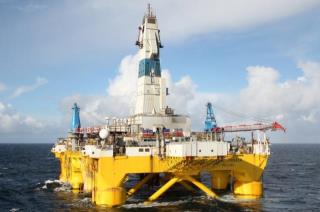Shell’s plans for exploratory drilling in the Chukchi Sea hit a new snag, when environmental groups discovered a conflict with a U.S. Fish and Wildlife Service regulation that would force the company to space its rigs farther apart.
In a new letter of authorization to Shell, FWS appeared to agree with those critics, complicating the company’s plan to drill in the brief summer window. Shell indicated it would deal with the new timetable.
Led by lawyers with the group Earthjustice, who discovered the 2013 FWS rule, environmentalists said the rule requires drilling rigs to be at least 15 miles apart to reduce disturbances to migrating walruses, covered under the Marine Mammal Protection Act.
“To the best of our knowledge, Shell has submitted APDs (applications for permits to drill) to conduct simultaneous drilling operations at the Burger J and V drill sites this summer, which are approximately nine miles apart,” Earthjustice lawyers wrote in a June 23 letter to Interior Secretary Sally Jewell.
In a June 30 letter to the White House, Sen. Jeffrey A. Merkley, D-Ore., and four other Democratic senators called for enforcing the separation distance.
“Under FWS regulations, Shell must maintain a 15-mile buffer between all wells or seismic activity, Shell's submitted exploration plan uses specifically identified drill sites, none of which maintain a 15-mile separation,” the senators wrote. “Without this mandated separation zone, Shell's planned wells will negatively impact the resting, feeding, and breeding grounds of walruses.”
The senators argued that not enforcing the separation zone would ensure challenges from groups like Earthjustice: “Over the past decade, attempts to conduct oil and gas exploration in the Arctic Ocean have resulted in controversy, successful lawsuits, and the diversion of government resources. Shell's latest permit will be no exception if it is approved despite inconsistences with the requirements of federal agencies.”





